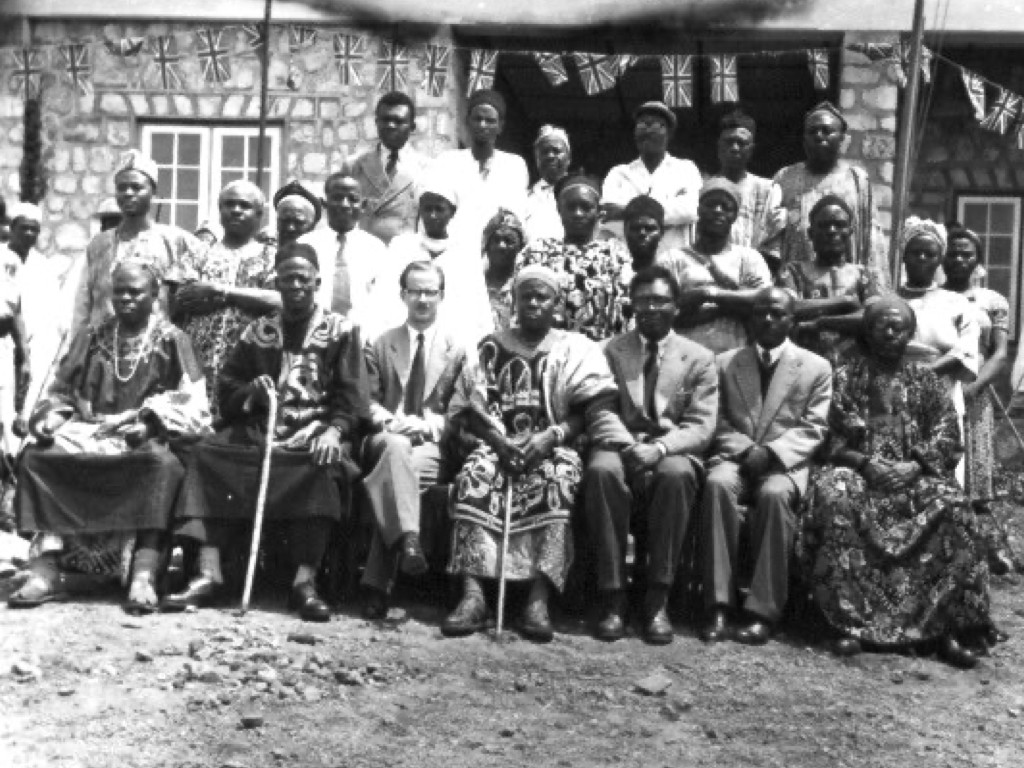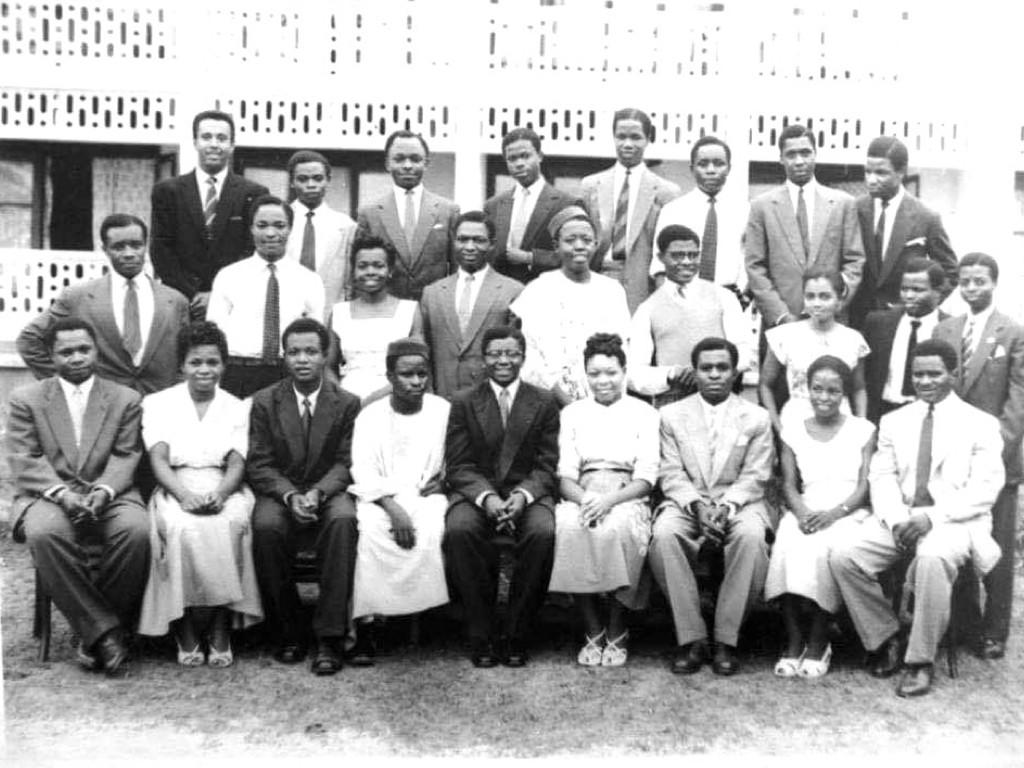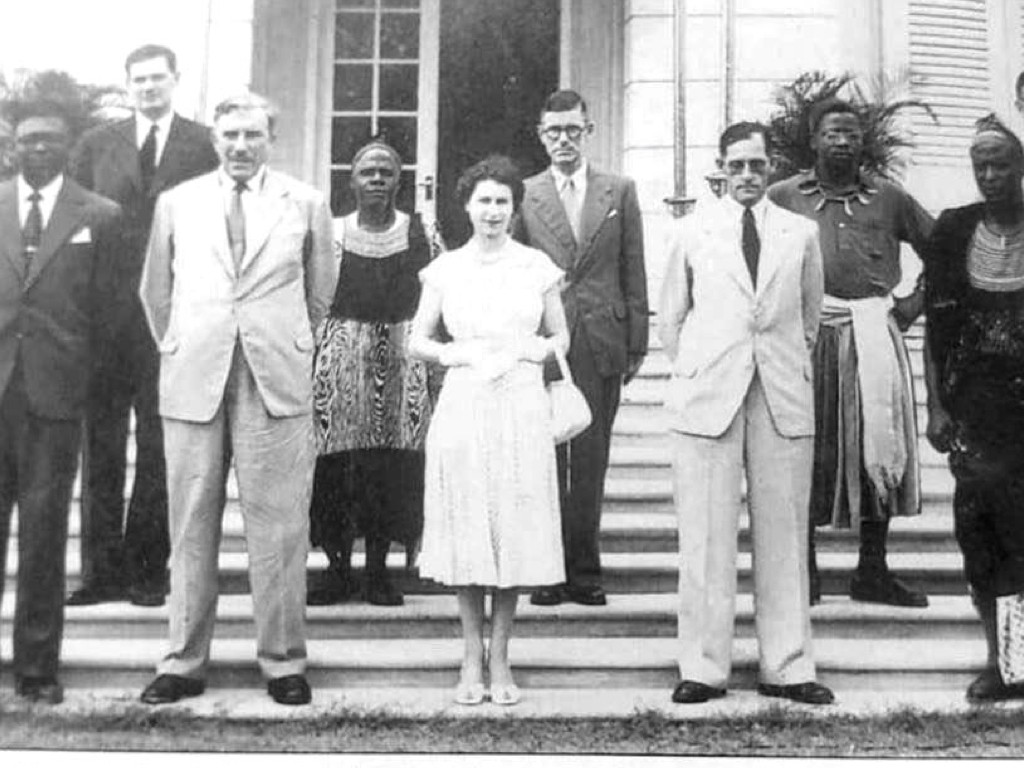CDN's Global Footprint
Southern Cameroonians form the membership base of the CDN. In collaboration with our friends from the International Community, we are building a global team to work for sustainable peace in the Southern Cameroons.

JOINING THE CDN
CDN Memberhip Types
Individual
Organization

After his appointment as the first Premier of The Southern Cameroons May 1958, Dr E.M.L Endeley, O.B.E. tours the territory to explain the new Ministerial system of government. Here he is seen (sitting, third from right) with a Native Authority Council in Bamenda.


Students from The Southern Cameroons in the University of Ibadan in 1958/59.
Front Row: Unknown, Helen F. Awasum, Unknown, Denis Balogun, Boniface Vega, Dorothy Ikomi, Victor Effimba, Gladys Martin, Victor Anomah Ngu
Middle Row: Anthony Maimo, Boniface Nasah, Lena Elango, Unknown, Toleng, Arnold Yongbang, Unknown, Nzo Ekangaki, Unknown
Back Row: Unknown, Albert Mukong, Thomas Nchinda, Unknown, Lawrence Biaka, Gregory Epanty, Unknown, Daniel Lantum

ABOUT US
Our Commitment to Diversity
- Support people in extreme need
- Largest global crowdfunding community
- Make the world a better place
- Share your love for community
Groups supported by the CDN in the community
STRATEGIC CONVERGENCE
Bringing Stakeholders Together
Members of the CDN are focused on the following objectives:
- Building consensus with various stakeholders on strategies for effective resolution of this conflict.
- Engaging international stakeholders especially the United Nations, the African Union, European Union, the United States, United Kingdom, France, Germany etc.
- Assisting in facilitating dialogue and negotiations
Fraction of Frontline Groups engaged by the CDN towards strategic convergence

Meeting between the Government of The Southern Cameroons and the Queen of England during the Queen's inaugural visit to Nigeria between January 28 and February 16, 1956.
Front Row: Endeley, Robertson, Queen Elizabeth, Gibbons, Muna
Back row: Patterson, Kangsen, Ajebe Sone

Strategic Formation
Building an Organization for the Future
WORKING GROUPS
Putting our Brains behind the Tough Issues
The Coalition for Dialogue and Negotiations has put together seven (7) key Working Groups as part of its Secretariat. The Working Groups are made up of technical experts around the world who help shape strategy and engagement. If interested in joining a Working Group kindly request to join a group.
Mediation and Peacebuilding
Bringing both parties to the negotiation table
Economic Reconstruction
Robust effort to rebuild the destroyed economy
Public Security
Engaging community actors for durable peace
Governance
Proper management of public resources.
Humanitarian Relief
Collaborating to ensure emergency relief
Judiciary
Work to ensure justice and equity
Education
Working to get children back to school.
Mediation and Peacebuilding
Bringing both parties to the negotiation table
COMMON QUESTIONS
Get Answers or Ask a Question
Do you have a question you will like to see answered on this list? Please submit and we will review and respond. Thank you.

